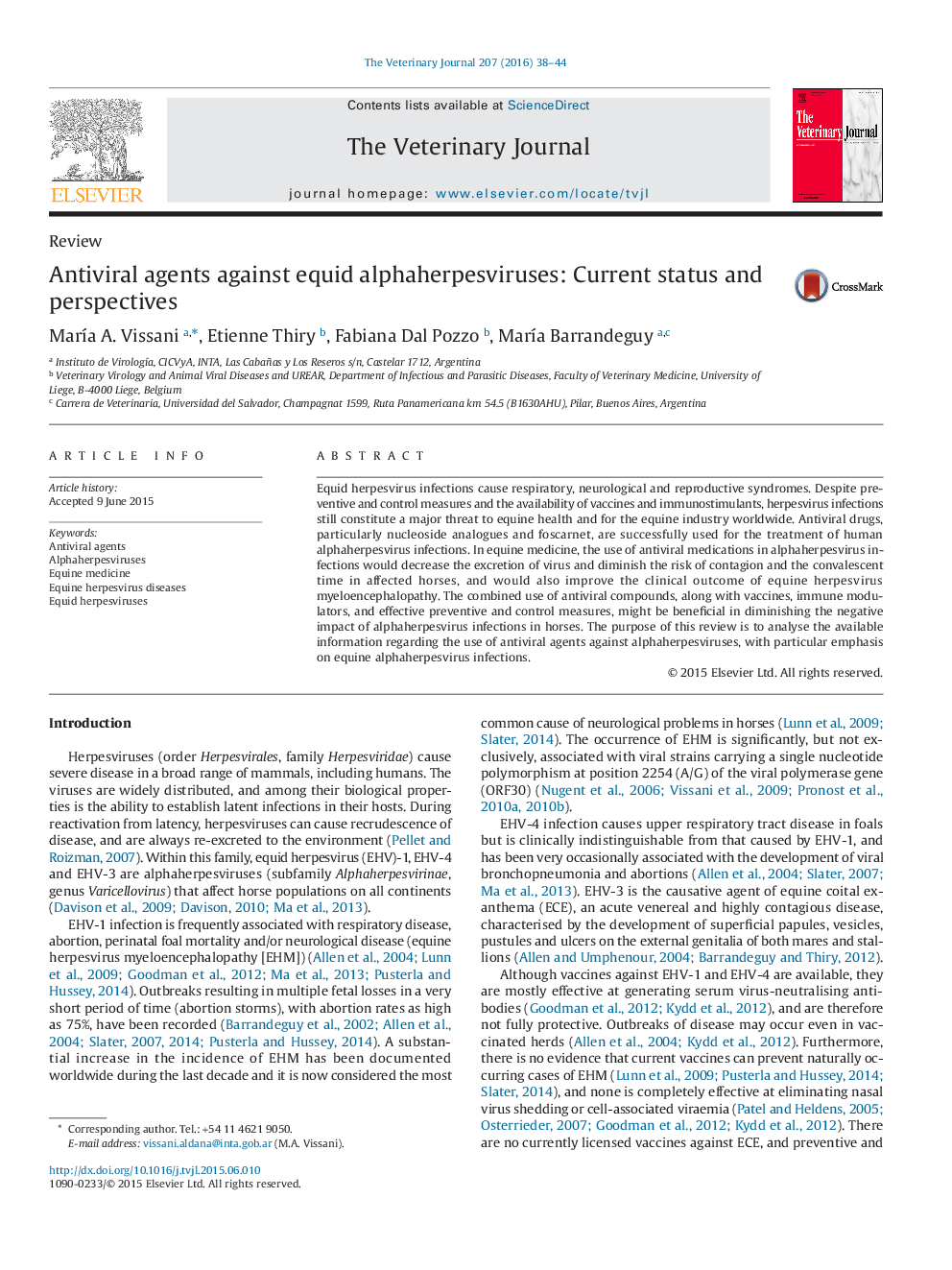| Article ID | Journal | Published Year | Pages | File Type |
|---|---|---|---|---|
| 5797517 | The Veterinary Journal | 2016 | 7 Pages |
â¢Alphaherpesviruses pose a major threat to equine health and the equine industry.â¢In humans, antiviral drugs are successfully used to treat alphaherpesviruses.â¢Antiviral drugs against EHV-1 have been tested in vitro and in vivo, but only in vitro against EHV-3.â¢Antiviral chemotherapy offers a promising strategy against equid alphaherpesviruses.
Equid herpesvirus infections cause respiratory, neurological and reproductive syndromes. Despite preventive and control measures and the availability of vaccines and immunostimulants, herpesvirus infections still constitute a major threat to equine health and for the equine industry worldwide. Antiviral drugs, particularly nucleoside analogues and foscarnet, are successfully used for the treatment of human alphaherpesvirus infections. In equine medicine, the use of antiviral medications in alphaherpesvirus infections would decrease the excretion of virus and diminish the risk of contagion and the convalescent time in affected horses, and would also improve the clinical outcome of equine herpesvirus myeloencephalopathy. The combined use of antiviral compounds, along with vaccines, immune modulators, and effective preventive and control measures, might be beneficial in diminishing the negative impact of alphaherpesvirus infections in horses. The purpose of this review is to analyse the available information regarding the use of antiviral agents against alphaherpesviruses, with particular emphasis on equine alphaherpesvirus infections.
